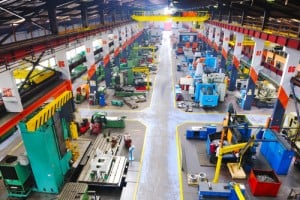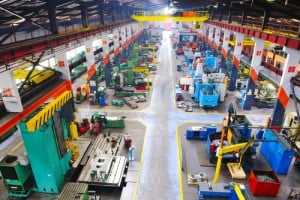Change Management: The People Aspect of a Project
I was talking to several people recently and I mentioned the importance of change management to them and they didn’t know what I was talking about. It seems that most people still haven’t heard about change management, or behavioral change management as some call it.

And even the people who have heard about don’t really know much about it or why it’s important. Maybe it’s one of those things that people talk about but never do. Anyway, I thought I spend just a little bit of time talking about change management and explaining a bit about what it is and why it’s so important.
So, if you do projects in the engineering space or in the IT space like with PLCs or DCSes or HMI/SCADA or MES or even ERP, you are probably doing a lot of thing which are supposed to have a pretty big impact on the way that the company does business. If the project goes well you hope to have a significant impact on the bottom line for the company.
But, all that impact in the way the company does business means that the project or system is going to have a big impact on a lot of people and on the way that those people do their jobs. If you’re putting in a new DCS, HMI/SCADA, MES, or ERP then you’re going to affect a lot of people.
In some cases you just might be affecting every single person that works on the shop floor. That’s a huge impact. Some aspect of every single person’s job on the shop floor is going to change somehow someway with the new system. You are changing something that impacts every single person on the shop floor.
You need to know that and you need to plan for handling all that change. Change management is all about managing these kinds of changes. Not reactively when you have problems but proactively to make sure that you minimize the issues long before they become problems.
Said another way, everyone knows about the importance of project management to keep the project on track with scope, schedule, budget, and so forth. Well, change management is all about the people side of the project.
It’s all about making sure that people know what’s happening and why it’s happening and how it affects them. And getting them on board with the changes. Whatever you’re doing there’s a good chance that it will be met with resistance at many different levels. Change management is about proactively managing the change and managing the resistance.
You need change management from the very beginning of the project. It shouldn’t be an afterthought or an add-on to the project. You need to admit that you are making big changes and proactively manage those changes. Based on research, and my personal experience, change management is the number one success factor for shop floor projects of all shapes and sizes.
Here are your greatest contributors to change management success:
- Active and visible sponsorship – get the key sponsors on board with the project and make sure everyone sees that they’re committed to the project
- Buy-in from front-line managers and employees – get these people on board and let them know that what they’re doing is going to have a big impact on the company
- Exceptional project team – if it’s worth doing it’s worth doing right – make sure you have a good project team that knows how to work with people on the shop floor and knows how to make these projects successful
- Continuous and targeted communications – the communications needs to come from the sponsors, the executives, and the project and needs to be targeted at every single person being affected
- Well planed and organized approach – the change isn’t going to just happen by itself. You need a well organized approach to proactively manage the change
- Solid knowledge transfer plan – call it training, knowledge transfer, or what you will, but making sure that everyone thoroughly and completely knows what to do and how to do it
- Entrenchment – you need follow-up, you need long-term metrics, you need ongoing training and support – in short you have to keep it all going for the long term
So, in a small nutshell that’s change management. It’s like project management but it’s the people side of projects. It’s proactively managing the people side of change to achieve the desired business results. And, it really is the number one success factor for shop floor projects.
I hope all this makes sense. I’ve covered a lot of materials in a short space. If you’ve got some questions or comments, let me know. I also welcome any and all feedback. Good luck!



